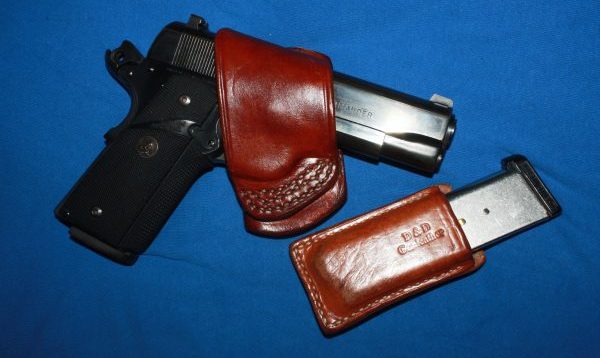
The District of Columbia will not appeal its loss in the Wrenn concealed carry case to the Supreme Court. (Dave Workman)
By Dave Workman
Senior Editor
The District of Columbia will not be appealing its loss in the Second Amendment Foundation’s concealed carry challenge of city permit laws, apparently fearing a Supreme Court loss that could jeopardize “good cause” requirements in various states.
That’s what SAF founder and Executive Vice President Alan M. Gottlieb surmised when he learned the city would not take the case to the high court. The District lost at the U.S. District Court of Appeals before a three-judge panel, and its request for an en banc hearing was rejected. The only recourse would have been to appeal to the Supreme Court.
The case is known as Wrenn v. District of Columbia.
The last time the city tried that strategy with a gun control law was when it fought the Heller case. That led to the landmark 2008 Heller ruling that affirmed the Second Amendment protects an individual right to keep and bear arms. The high court declared that the city’s handgun ban was unconstitutional.
According to the Washington Post, D.C. Attorney General Karl Racine and Mayor Muriel E. Bowser made the decision “because of the risk that an unfavorable Supreme Court ruling could strike down similar concealed-carry regulations across the country in states such as California, New York, Maryland, Massachusetts, Hawaii, New Jersey and Connecticut.”
Gottlieb, in a prepared statement, noted, “If the District had lost the case before the high court, it would have dealt a fatal blow to similar requirements in (various states), and that prospect had anti-gun politicians in those states quaking in their shoes.”
“We believe the city was under intense pressure to take the hit and not appeal the ruling by the U.S. District Court of Appeals,” he said.
The 2008 Heller ruling opened a flood gate for legal action that began with the 2010 case of McDonald v. City of Chicago. That was also a SAF case and it nullified the Chicago handgun ban that had existed for nearly three decades. More importantly, it incorporated the Second Amendment to the states via the 14th Amendment.
“Let’s face it,” Gottlieb said, “anti-gunners are determined to cling to their dogma of public disarmament rather than admit that their resistance to common sense concealed carry reform amounts to nothing more than stubborn denial. These people simply do not want to enter the 21st Century. They refuse to accept the Supreme Court ruling that the Second Amendment protects and affirms an individual right to not only keep arms, but to bear them as the Founders understood.”
And therein is the proverbial “rub.” The high court has avoided taking a case that deals specifically with carrying firearms outside the home, although various lower court judges have contended that a right limited only to one’s home is not a right at all.
Gottlieb, who was somewhat hopeful that the city would take its case to the Supremes, observed that, “this decision opens the gate farther to an inevitable high court confrontation because there are now conflicting opinions on concealed carry from the different circuit courts. Common sense says that the 14th Amendment’s equal protection clause will not allow that conflict to continue.”



